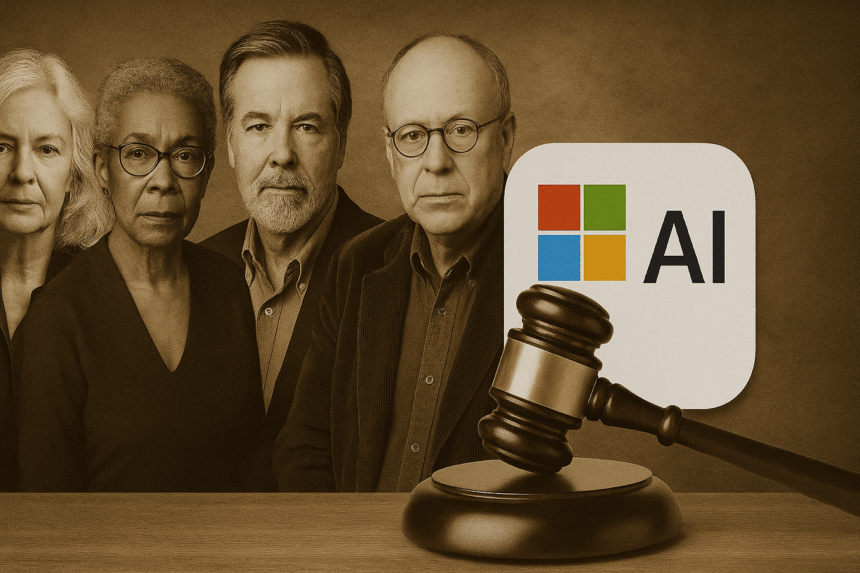A group of high-profile authors has taken legal action against Microsoft. They claim the tech giant used nearly 200,000 pirated books to train its AI model, Megatron. This lawsuit adds to ongoing legal battles involving major tech companies accused of misusing copyrighted works in AI training. The case raises important questions about the boundaries of AI development and the application of copyright law.
What’s Happening & Why This Matters
Microsoft faces serious allegations from renowned authors like Kai Bird, Jia Tolentino, and Daniel Okrent. The authors filed their complaint in a New York federal court, demanding that Microsoft stop the alleged infringement and pay up to $150,000 for each misused work. The lawsuit claims Microsoft built Megatron using pirated digital books without permission. Megatron is an AI model that generates text responses by learning from vast datasets of media.
The authors argue that Microsoft’s AI model not only copies but also mimics the style, voice, and themes of thousands of copyrighted books. In this use, they say, it violates their intellectual property rights and exploits their creative efforts. The complaint portrays Megatron as a product deeply rooted in unauthorized content, raising ethical and legal concerns about how AI models are trained.
Microsoft has not publicly commented on the lawsuit. Meanwhile, similar cases swirl around the AI industry. Recently, a California judge ruled Anthropic’s use of copyrighted material to train AI may be fair use but still left open the possibility of liability for pirated content. Around the same time, Meta also won a related case, although the judge cited weak plaintiff arguments rather than strong legal defenses.
The conflict over copyright and AI has expanded across media types. The New York Times sued OpenAI for using its archives without permission. Dow Jones took similar action against Perplexity AI. Record labels battle companies creating AI-generated music, while Getty Images sues Stability AI over image generation. Disney and NBC Universal recently sued Midjourney for unauthorized use of popular characters.
Tech companies defend their practices as fair use, arguing that AI creates new, transformative content. They warn that strict copyright enforcement could stifle innovation. OpenAI’s CEO Sam Altman said ChatGPT’s success relied heavily on access to copyrighted works.
TF Summary: What’s Next
This lawsuit against Microsoft is an inflection point in the debate over AI training and intellectual property rights. Courts will continue to grapple with balancing innovation with the protection of creators. The unfolding of legal rulings could significantly reshape AI development practices and content licensing globally. Innovators and users are closely observing developments as creatives and companies assert their rights in this rapidly evolving technological era.
— Text-to-Speech (TTS) provided by gspeech


